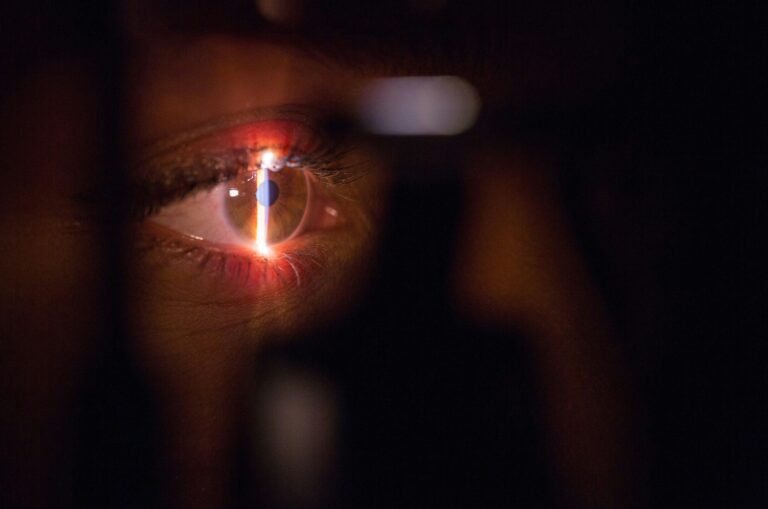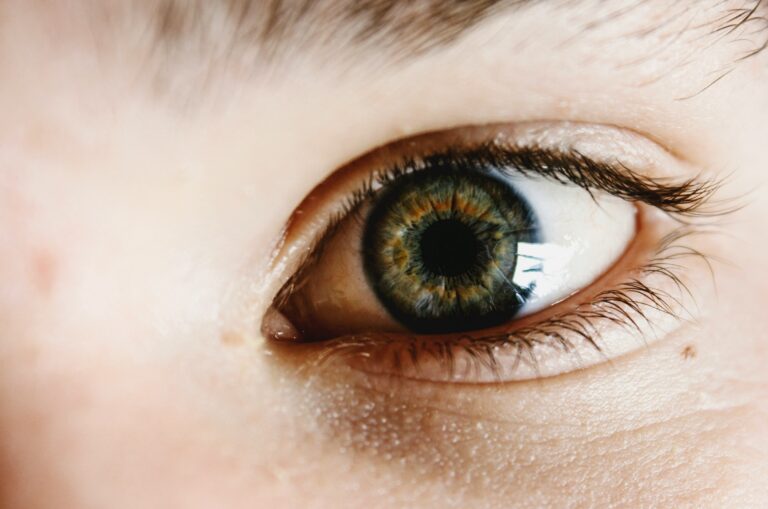Age-related macular degeneration (AMD) is a chronic, age-related condition that affects the part of the retina where images from the central vision are focussed (the macula). Damage to this vital part of the retina can result in significant reduction or loss of central vision, although the more peripheral vision typically remains unaffected.
Eye Research Australia estimate that AMD affects approximately one in seven Australians aged over 50, with almost 15% of those above 80 years of age experiencing blindness or vision loss due to AMD.
AMD is characterised by the presence of small yellow deposits (drusen) at the macula. The presence of drusen alone does not cause significant vision loss. AMD may progress however, resulting in an atrophy (wasting away) of the macula (“dry” AMD) or the growth of new blood vessels which cause an accumulation of fluid at the macula (“wet” AMD). Both dry and wet AMD can cause significant vision loss.
In the early stages, AMD has no visual symptoms and can only be detected via an eye examination. Specialised equipment including retinal cameras and optical coherence tomographers can be used to examine the macula for changes associated with AMD.
Regular at-home monitoring of the vision using an Amsler Grid (figure 1) can also help detect any visual changes between appointments. Any distortion of the grid lines whilst viewing the central dot with one eye only may be an indication of AMD progression and a prompt appointment with an Optometrist or Ophthalmologist should be arranged.
If AMD progresses to the ‘wet’ form, it is typically treated with injections into the eye which are designed to dry up leakage from the new blood vessels. While very effective, unfortunately ongoing treatment is required as otherwise the fluid will return and progress to cause further damage.
There is currently no treatment for atrophic or ‘dry’ AMD available, however a treatment with promising results is just about to be approved for use in the Australian Health care system.
While the biggest risk factors for AMD progression are age and genetics, general health and lifestyle can also play a significant role. Smoking is a significant risk factor for this condition, and cessation of smoking will help to lower the risk of vision loss. Recent research around diet has also shown that a diet rich in antioxidants, omega-3, Zinc, vitamins C and E, selenium and low GI-carbohydrates is beneficial in significantly reducing the risk of vision loss. Alternatively appropriate dietary supplements have been shown to have a beneficial effect on reducing disease progression for those that already have AMD.










